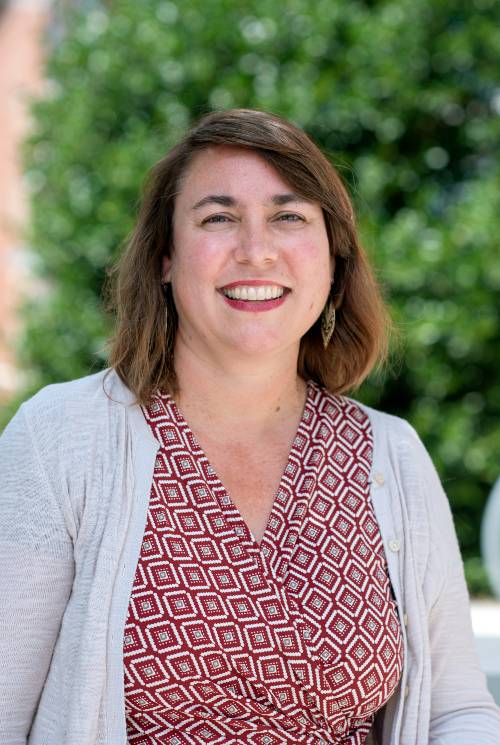Ricci strives to break barriers to education for adult learners
Published on: September 20, 2022

Claire Ricci, dean of adult education at Guilford Technical Community College, is a passionate advocate for adult learners, for those who may have been left behind earlier in life, and for those new to the United States.
She understands the needs of adult students and the challenges they navigate. She also recognizes their importance to the work force and the community.
"Sometimes assumptions are made about people in adult education and the GED program that they didn't have the ability in high school, but most people are here because of financial reasons, or their parents were sick, or they were homeless, or a multitude of different reasons that caused them not to finish high school," Ricci said.
"With our English for Speakers of Other Languages (ESOL) students, we see a huge range of language levels from beginning to advanced and from all parts of the world. So many of our students have so many skills and to see them get their confidence and see them be successful is very rewarding.
"We get to really make a change in students' lives. It's exciting to watch students make progress and earn degrees while improving their lives."
Ricci, born and raised in Atlanta, developed an affinity for Guilford County when she attended Guilford College. A couple of years after graduation, she was back in the area again working at her alma mater. Guilford County has been home ever since.
She's spent her career in education, her first two years as a middle school English teacher and working in adult education ever since. Some of that time she spent working with private entities, and before coming to GTCC four years ago she spent eight years at Alamance Community College and continued living in Guilford County.
"I worked in adult education at Alamance, but I was driving past the (GTCC) Greensboro campus every day," Ricci said. "I liked the idea of coming back to Guilford and doing the same work but at a larger institution and on a larger scale."
As the fourth largest program in the state, adult education at GTCC is more expansive than most other community colleges in North Carolina.
"Every one of the 58 community colleges in North Carolina has an adult literacy program, but I would say we are somewhat unusual."
Ricci said that other ESOL programs may be a third of the all the adult literacy students at those schools, but at GTCC it's 70 percent. "We serve a lot of students, approximately 3,000 per year."
Ricci said the ESOL students at GTCC have varied demographic backgrounds presenting different communication needs. The Piedmont Triad is considered a refugee resettlement area, which drives up the ESOL student population.
"There is a huge variety of age, country of origin, and level of education with our ESOL students. They might have some skills but need to communicate more fluently in English. Some students already have a high school diploma from their country. We had a medical doctor from China that couldn't practice here because his degree was in another language. He had to completely retrain.
"Our goal is to help adults be able to acclimate to the U.S. society, to be able to function, to find employment and if they want, to enroll in other programs at the college."
Ricci says most folks don't grasp the enormity and influence of GTCC's adult literacy program. Nor do they comprehend the far-reaching impact it has on people who complete any aspect of the program or the positive results it has on the community.
"It's an amazing resource. Even though it has been going on for 50 years, a lot of people don't know about it," Ricci said. "It's completely free. You can work on language and digital literacy skills. Some of our students are from another country or are older U.S. citizens and they need computer skills to survive in today's world.
"I think we give adults a second chance in a lot of ways. We give them a chance to acclimate, learn the language. We have a U.S. citizenship program. We teach about job opportunities. There are training programs they can enroll in. We are helping new arrivals get on their feet and get a job here.
"We are giving native speakers a chance to get a diploma. We remove as many barriers as possible by providing scholarships, bus passes, access to digital devices and childcare, and so much more. I love coming to work every day and knowing that the work we do is helping improve the lives of our students and our community as a whole."
For more information on GTCC's adult education programs, visit GTCC's Adult Education page.
Back to All Articles